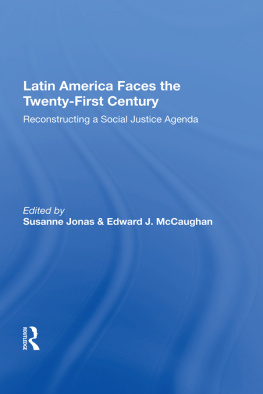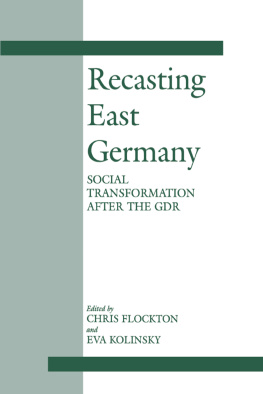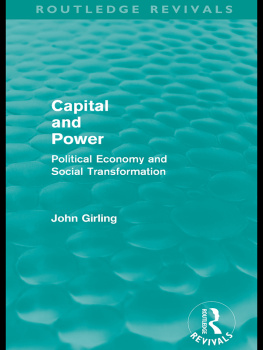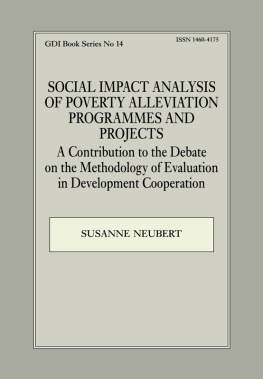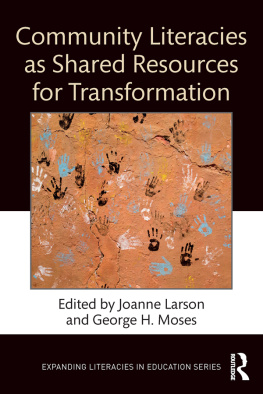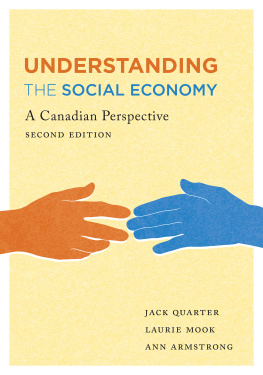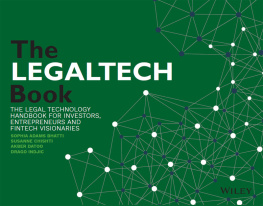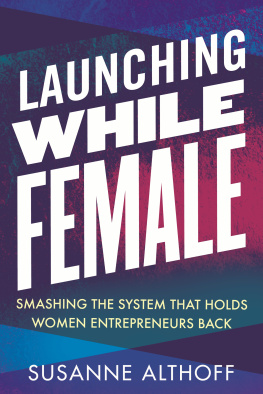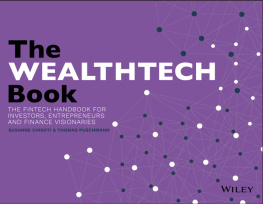
Eco-Social Transformation and Community-Based Economy
Worldwide societal problems such as mass unemployment, growing social disparities, public and private poverty, social exclusion, environmental destruction, and the evidence of climate change are increasing and becoming ever more visible. They require urgent and sustainable long-term solutions.
Eco-Social Transformation and Community-Based Economy provides a transdisciplinary conception of community-based socially productive approaches to eco-social transformation and sustainability. It introduces interdisciplinary discourses, basic theoretical concepts, participatory and community-based research, development strategies, and practical prospects and considers them in the context of both eco-social transformation and eco-social work, especially with disadvantaged groups.
With case studies that demonstrate the creative power of local embeddedness, diversity, and cooperation, this book presents integrative local approaches as convincing examples of possible ways forward. It will be of interest to all scholars, students, and activists working in community development, social development, social work, and human geography.
Susanne Elsen is a professor of social sciences at the Free University of Bolzano, Italy. She has long-term experience in transformative research, development, and training in fields of social and solidarity economy and community-based development in and outside of Europe. Her emphasis as researcher and activist lies in eco-social development and transformation with a special focus on integrative and participative socioeconomic solutions for disadvantaged rural and urban areas.
Routledge Advances in Social Work
Consciousness-Raising
Critical Pedagogy and Practice for Social Change
Nilan Yu
Participatory Pedagogic Impact Research
Co-production with Community Partners in Action
Mike Seal
Forthcoming
Intersectionality in Social Work
Activism and Practice in Context
Edited by Suryia Nayak and Rachel Robbins
Conversation Analysis for Social Work
Talking with Youth in Care
Gerald deMontigny
Older Lesbian, Gay, Bisexual and Trans People
Minding the Knowledge Gap
Andrew King, Kathryn Almack, Yiu-Tung Suen and Sue Westwood
Visual Communication for Social Work Practice
Power, Culture, Analysis
Sonia Magdalena Tascon
Art in Social Work Practice
Theory and Practice: International Perspectives
Ephrat Huss and Eltje Bos
The Uses and Abuses of Humour in Social Work
Stephen Jordan
www.routledge.com/Routledge-Advances-in-Social-Work/book-series/RASW
First published 2019
by Routledge
2 Park Square, Milton Park, Abingdon, Oxon OX14 4RN
and by Routledge
52 Vanderbilt Avenue, New York, NY 10017
Routledge is an imprint of the Taylor & Francis Group, an informa business
2019 Susanne Elsen
The right of Susanne Elsen to be identified as author of this work has been asserted by her in accordance with sections 77 and 78 of the Copyright, Designs and Patents Act 1988.
All rights reserved. No part of this book may be reprinted or reproduced or utilised in any form or by any electronic, mechanical, or other means, now known or hereafter invented, including photocopying and recording, or in any information storage or retrieval system, without permission in writing from the publishers.
Trademark notice: Product or corporate names may be trademarks or registered trademarks, and are used only for identification and explanation without intent to infringe.
British Library Cataloguing-in-Publication Data
A catalogue record for this book is available from the British Library
Library of Congress Cataloging-in-Publication Data
Names: Elsen, Susanne, author.
Title: Eco-social transformation and community-based
economy / Susanne Elsen.
Description: Abingdon, Oxon ; New York, NY : Routledge, 2019. |
Series: Routledge advances in social work | Includes bibliographical
references and index.
Identifiers: LCCN 2018040532| ISBN 9780815359562 (hardback)
| ISBN 9781351119863 (ebook)
Subjects: LCSH: Community development. | Economic development. |
Sustainable development. | Public welfare.
Classification: LCC HN49.C6 E45 2019 | DDC 307.1/4dc23
LC record available at https://lccn.loc.gov/2018040532
ISBN: 978-0-815-35956-2 (hbk)
ISBN: 978-1-351-11986-3 (ebk)
Typeset in Times New Roman
by Apex CoVantage, LLC
New concepts, ideas, and real utopia emerge from communication, exchange, and cooperative knowledge production. They have strong fundaments created by thought leaders in history and presence in all world regions.
Thanks to my friends, mentors, colleagues, and students for encouragement and stimulation, for their expertise and critical questions, for common interesting experiences, and for the fascination of developing alternative ideas and real-life laboratories to unsupportable realities.
Thanks, Heinz Ries, Isidor Wallimann, Lothar Bhnisch, Adelheid Biesecker, Thom Sauer, Marianne Kaiser, Marion Schick, Judith Schicklinski, Claudia Lintner, Walter Lorenz, Friedrich Seibel, Livio Biasia, Cordula Kropp, Heike Walk, Werner Siebel, Oscar Kiesswetter, Luca Fazzi, Silvia Staub-Bernasconi, Armin Bernhard, Ulrike Folie, Ailaa-Lena Mathies, Ingo Stamm, Lynn Mastellotto, Stefan Zerbe, Sergio Angeli, Kris Krois, Alexander Nitz, Christa Mller, Karl Tragust, Reinhard Gunsch, Heinz, and Trudy Schulze, Burghard Flieger, Tilo Klck, and Markus Litz.
And thanks to Margrit Kennedy, Bernd Hamm, Rolf Schwendter, and Hans-Peter Drr, the fellows who recently passed away, leaving us their precious legacy as direction signs to follow the common concerns.
Why is community economy a central task of eco-social transformation?
Since the 1970s community-based economy has emerged as a local strategy for confronting the growing ecological and social uncertainties and the multiple crises of a global market economy. It is an effective approach to combat poverty, foster eco-social transformation, and create more equitable, independent, self-reliant, and resilient communities. The resilience of a community means that it has the capacity to deal with changes and cope with pressure from outside. The current eco-social challenges in society are intertwined and call for synergetic and comprehensive solutions. Diversity, whether biodiversity or cultural diversity; the plurality of organizational structures or economic transactions; and strong networks in human systems all support the building of resilience in this sense. While further development programs focus on moving people out of poverty, along the logic of the eco-social turn, community-based development approaches aim to change institutions and have a broader view of humans as stewards of their own future on earth (Folke 2016).
More than 20 years ago, Herman Daly reflected on the externalization of eco-social costs in industrial modernity, stating,
The scope of internalized costs within nations is enormous: workplace safety, minimum wage, welfare programs, social security, length of the working day, abolition of child labour, medical insurance, pollution control [] All these social and environmental measures raise costs and cannot withstand the standards-lowering competition induced by free trade with countries that have lower standards.




